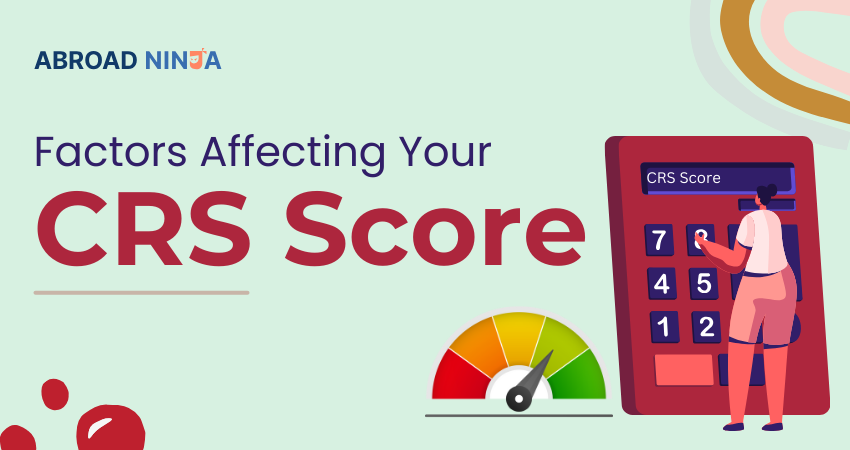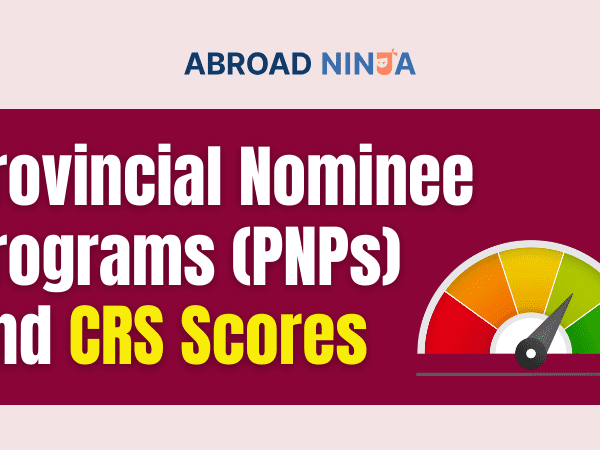The Comprehensive Ranking System (CRS) score is a must-have for Canadian immigration. It is calculated using factors like age, education, work experience, language proficiency and adaptability.
Age is important. You get more points if you are young. This is because you have more potential to benefit Canada in the long run.
Education influences your CRS score too. Higher qualifications mean more points, as they show your skills and knowledge. Your credentials from outside Canada must be evaluated by designated organizations to verify their equivalence.
Work experience is considered too. The Canadian government values those with relevant experience, as it shows their ability to fit the job market. Points are given based on the number of years worked, inside and outside Canada.
Language proficiency is key. English or French tests like IELTS, CELPIP or TEF are needed, and must meet IRCC’s minimum scores.
Adaptability factors include a valid job offer from a Canadian employer, previous study in Canada, Canadian citizens or permanent residents as relatives, or a provincial nomination program.
Knowing the CRS score is crucial for immigration to Canada. Improve your age, education, work experience, language and adaptability to maximize your chance of achieving a higher score and getting an invitation to apply for permanent residency.
IRCC announced in 2020 that the required CRS score for an invitation to apply for permanent residency was a record low of 415 points in a specific draw.
Key Factors Affecting Your CRS Score
Your Comprehensive Ranking System (CRS) score is essential for Canadian immigration programs. Let’s look at the key factors that influence it.
| Age | Education | Language proficiency | Work experience | Canadian job offer | Provincial nomination |
|---|
These all help your score. Furthermore, getting an educated degree in Canada, or having a sibling who is a Canadian citizen or permanent resident, will increase your CRS score.
It’s important to remember that IRCC updates the CRS system regularly. So, stay informed of the changes and requirements, to maximize your chances of success.
According to IRCC data, high CRS scores usually lead to invitations to apply for permanent residence.
Also Read: Mastering the CRS Calculator for Express Entry
Understanding the Impact of Each Factor
The effect of each factor on your CRS score is key to discovering if you are eligible for Canadian immigration. Let’s take a look at the details and comprehend how each part influences your final score.
To understand the gravity of these factors, let’s review their importance through a comprehensive table:
| Factor | Impact on CRS Score |
|---|---|
| Age | Affects the score positively until a certain point. |
| Education | Higher levels contribute to a better CRS score. |
| Language Skills | Expertise in both English and French increases the score. |
| Work Experience | Relevant work experience adds points to the overall score. |
| Adaptability | Factors like Canadian education, work experience, and job offers increase CRS points. |
Now we have grasped the effect of each factor in detail, let’s talk about some interesting things that are worth considering.
Apart from age and language skills, it is essential to note that higher education qualifications significantly enhance your CRS score. Also, gaining practical work experience can be a significant factor in increasing your odds of success.
To provide more understanding, an anecdote about someone who improved their CRS score is helpful. Meet John Doe, who worked hard on improving his language proficiency. With commitment and determination, he made major progress and earned extra points for his CRS application.
Keep in mind, grasping how each factor affects your CRS score is critical for improving your chances of immigration success. By addressing these areas strategically and staying up-to-date with any changes made by Canadian authorities, you can amplify your chances and reach your goal of settling in Canada.
Tips to Improve Your CRS Score
To up your CRS score, you must concentrate on certain points. Here are three top tips:
- Raise Your Language Ability: Getting good marks in tests like IELTS or TEF – in English or French – can give you extra CRS points.
- Improve Your Education Qualifications: Doing higher education degrees or gaining added certifications will help with the Express Entry system.
- Gain Beneficial Work Experience: Accumulating more experience, particularly in an in-demand job, can really help your CRS score.
Also, think about getting a job offer in Canada, bettering the language skills of your partner, and getting a provincial nomination. These can all help your CRS score.
Act fast! Start now to increase your CRS score and get better chances of getting an invitation to apply for permanent residence in Canada. Don’t miss out – begin enhancing your profile today!
Also Read: Tips for a Successful Canada PR Interview
Conclusion: Summary of the key factors and suggestions for improving CRS score.
Various factors can significantly affect your CRS score when trying to immigrate to Canada. Knowing and improving these key factors can help you increase your eligibility for Canadian permanent residency.
Age is one factor; younger applicants tend to be given higher scores. Education is another; applicants with higher qualifications tend to be awarded more points. Language proficiency is also crucial; strong French or English skills through tests like IELTS and TEF can boost your CRS score. Additionally, work experience in a skilled occupation can grant you further points. Finally, having a close relative living in Canada (either citizen or permanent resident) can give you additional points.
Investing time and effort into improving these aspects can help you maximize your CRS score and increase your chances of gaining an invitation to apply for Canadian permanent residency.
Frequently Asked Questions
FAQ 1: Question: What is a CRS score?
Answer: The Comprehensive Ranking System (CRS) score is a points-based system used by the Canadian government to assess and rank candidates applying for Canadian permanent residency through the Express Entry program. It is based on factors such as age, education, language proficiency, work experience, and more.
FAQ 2: Question: What factors affect my CRS score?
Answer: Several factors can influence your CRS score, including age, level of education, language proficiency in English and French, work experience, Canadian job offers, provincial nominations, and spouse factors like education, language skills, and work experience.
FAQ 3: Question: How is the CRS score calculated?
Answer: The CRS score is calculated based on the information provided in your Express Entry profile. Each factor is assigned a specific point value, and your total score is determined by how well you meet the criteria in each category. The highest-scoring individuals are invited to apply for Canadian permanent residency.
FAQ 4: Question: Can I improve my CRS score?
Answer: Yes, there are several ways to increase your CRS score. Some strategies include improving your language skills, obtaining additional education or certifications, gaining more work experience, securing a Canadian job offer, or obtaining a provincial nomination. These actions can significantly impact your overall CRS score.
FAQ 5: Question: How often are CRS draws conducted?
Answer: CRS draws, also known as Express Entry draws, are conducted by the Canadian government at regular intervals. The frequency of draws can vary depending on immigration goals and application volumes. Generally, multiple draws occur each month, inviting candidates with the highest CRS scores to apply for permanent residency.
FAQ 6: Question: Is the CRS score the only factor considered for Canadian permanent residency?
Answer: No, the CRS score is a significant factor, but it does not guarantee Canadian permanent residency. Meeting the minimum CRS score requirement is essential to enter the Express Entry pool, but additional factors like medical and security checks, educational credential assessments, and specific program requirements must also be satisfied to obtain permanent residency in Canada.




